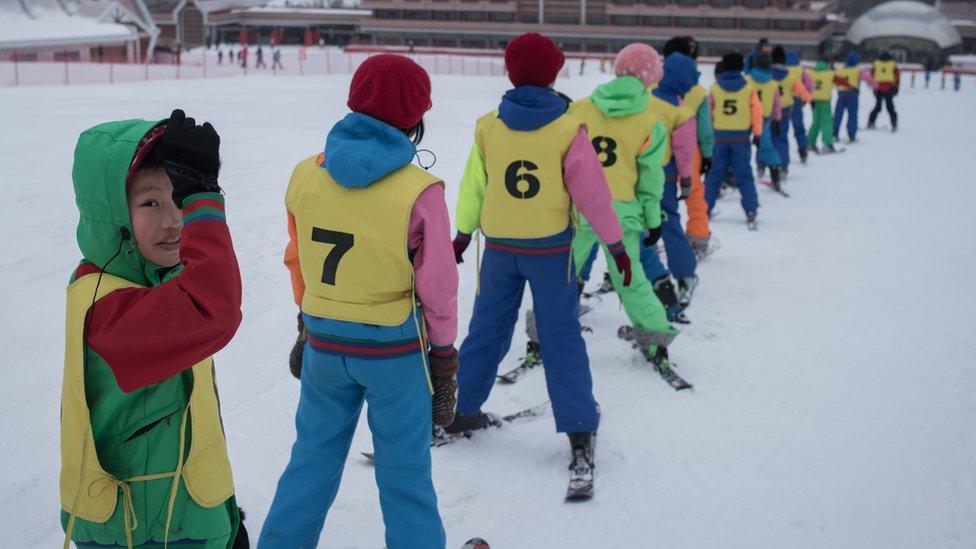North Korea: A sporting history of bombs and diplomacy
- Published
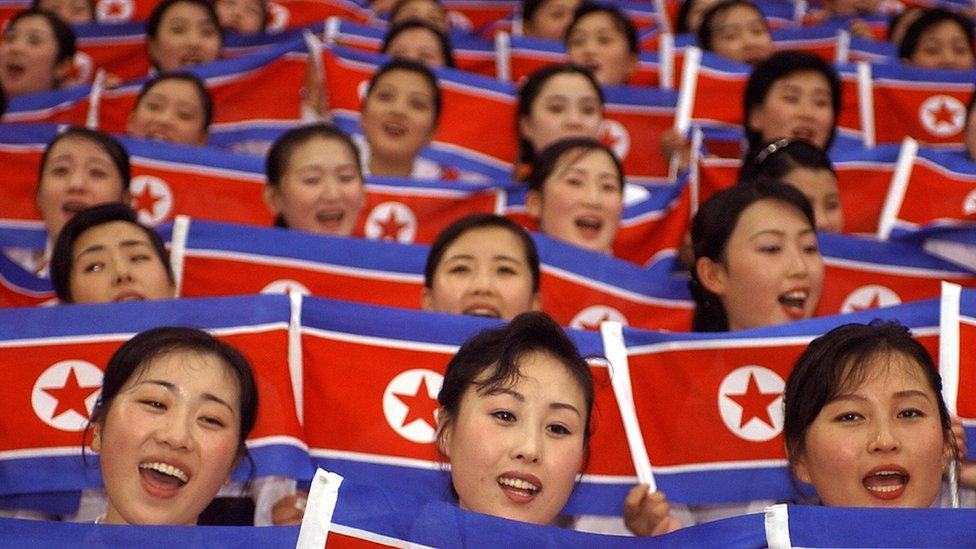
North Korean cheerleaders at the 2003 World Students Games
Sport often brings a certain degree of drama - but perhaps never more so than when it comes to the two rival Koreas.
North Korea has agreed to send a delegation to the 2018 Winter Olympic Games - after the first high-level talks between the countries in two years.
But sport does not always lead to warmer ties.
In the past, North Korea has launched deadly attacks on the South during, or in the run up to, major global sporting events being held in South Korea.

Aircraft bombing - 1988 Summer Olympics
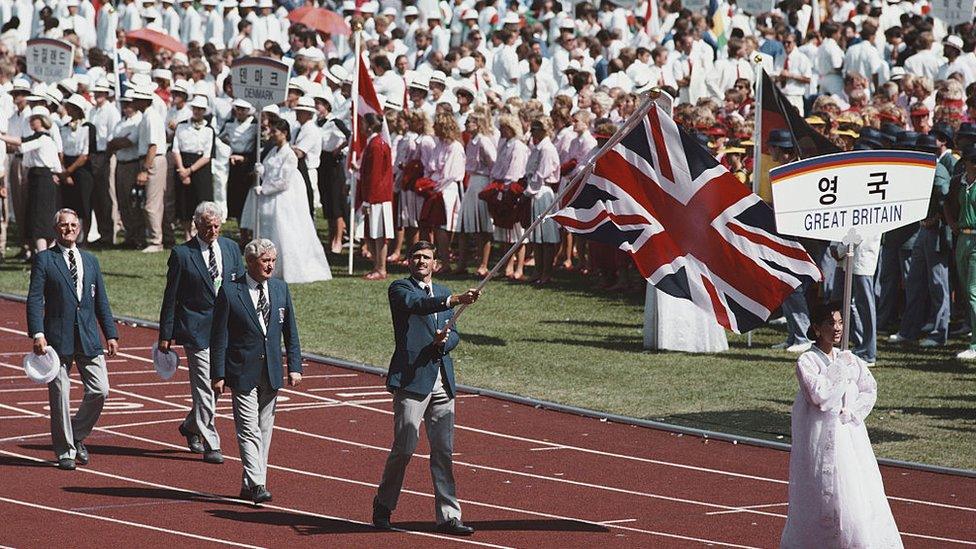
North Korea boycotted the 1988 Summer Olympics in Seoul
In 1987, two North Korean agents planted a bomb on Korean Airlines Flight 858 travelling from Baghdad in Iraq to Seoul, South Korea. During a stopover in Abu Dhabi, they got off. Hours later over the Andaman Sea, the bomb blew up, killing all 115 people on board.
At the time, South Korea was preparing to host the 1988 Olympic Games in Seoul - and North Korea was determined to stop it.
In an interview with BBC, one of the agents, Kim Hyun-hui said: "I was told by a senior officer that before the Seoul Olympics we would take down a South Korean airliner.
"He said it would create chaos and confusion in South Korea. The mission would strike a severe blow for the revolution."
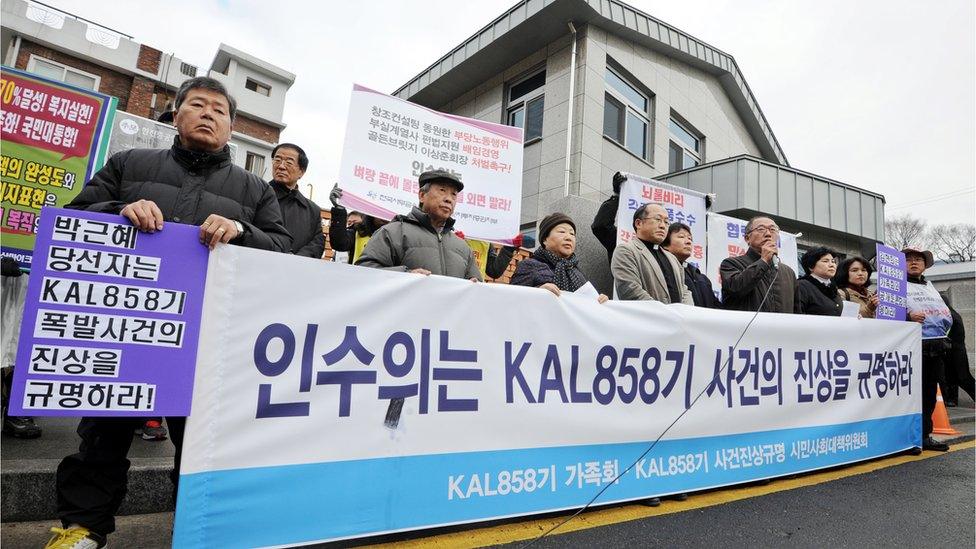
Families of the victims have demanded the government re-investigate the case

Naval battle - 2002 Fifa World Cup
The 2002 Fifa World Cup co-hosted by South Korea and Japan was a major turning point for South Korean football.
Previously, South Korea had never won a match at the World Cup. But at this tournament, they won against strong teams including Poland, the United States, Portugal, Italy and Spain - and made it to the semi-finals.
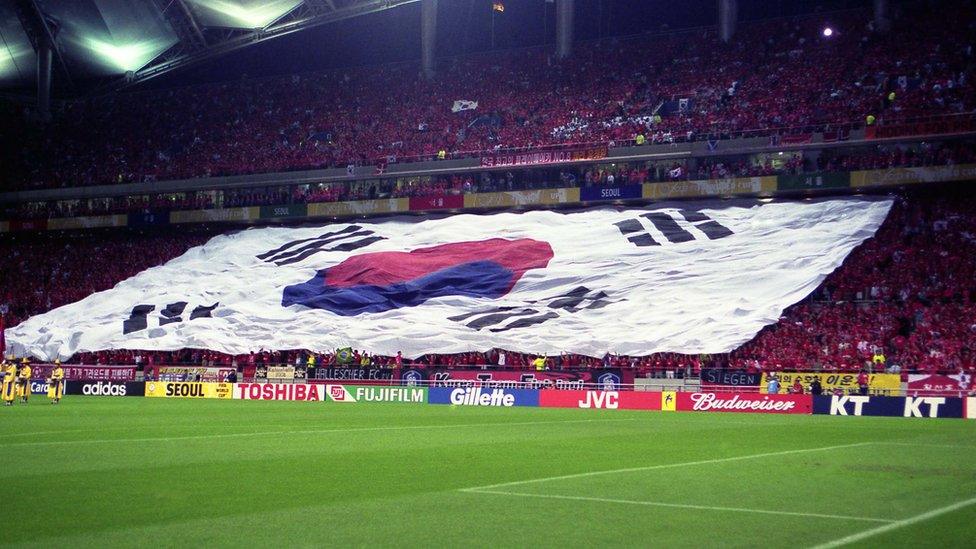
The 2002 Fifa World Cup was a big moment for South Korea
Their sporting success, and photos of South Koreans cheering their team, dressed in red and celebrating in the streets of downtown Seoul, made headlines around the world.
But during the third-place play-off match against Turkey, on 29 June, North Korea struck.
Pyongyang's patrol boats opened fire on a South Korean navy ship near Yeonpyeong island, after allegedly crossing the Northern Limit Line, a disputed maritime boundary in the Yellow Sea.
Six South Koreans died and at least nine were injured in the bloody naval battle.
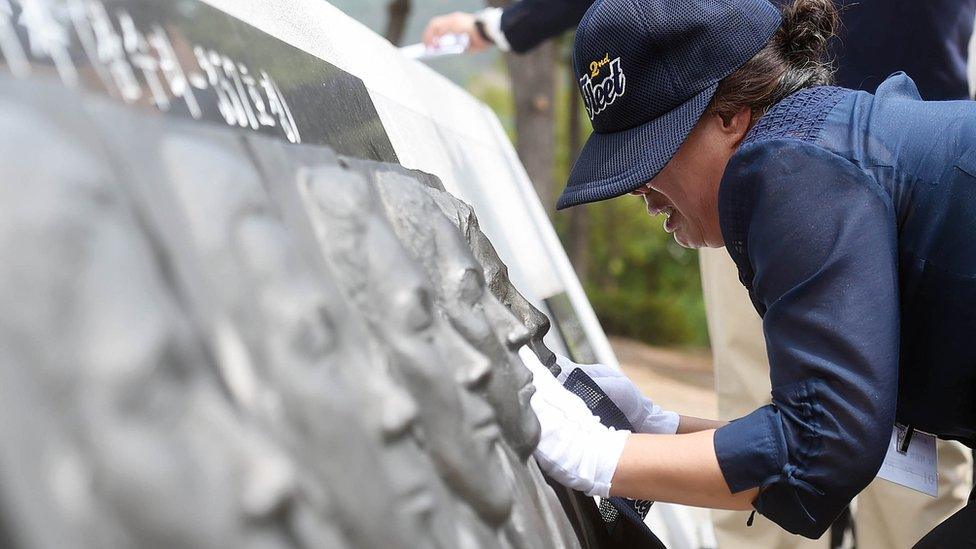
Families of the victims pay tribute last year, making the 15th anniversary of the battle
The UN designated the Northern Limit Line (NLL) as the maritime border between the two sides after the Korean War.
But the North does not recognise the border, making waters around the line a long-time flash point.
Despite the maritime clash, North Korea took part in the Asian Games in South Korea's Busan later that year.
It sent a 606-member delegation, including 184 athletes, 288 cheerleaders and 134 officers to the Games.

Family reunions and the 2014 Asian Games
The North agreed to family reunions for some relatives separated by the Korean War, as Seoul prepared to host the Asian Games in Incheon.
Millions of people were from loved ones by the physical division of the Korean peninsula after the war - and family reunions are one of the very few ways they can meet again.
The reunions are often emotional events - with relatives seeing each other for the first time in over 60 years.
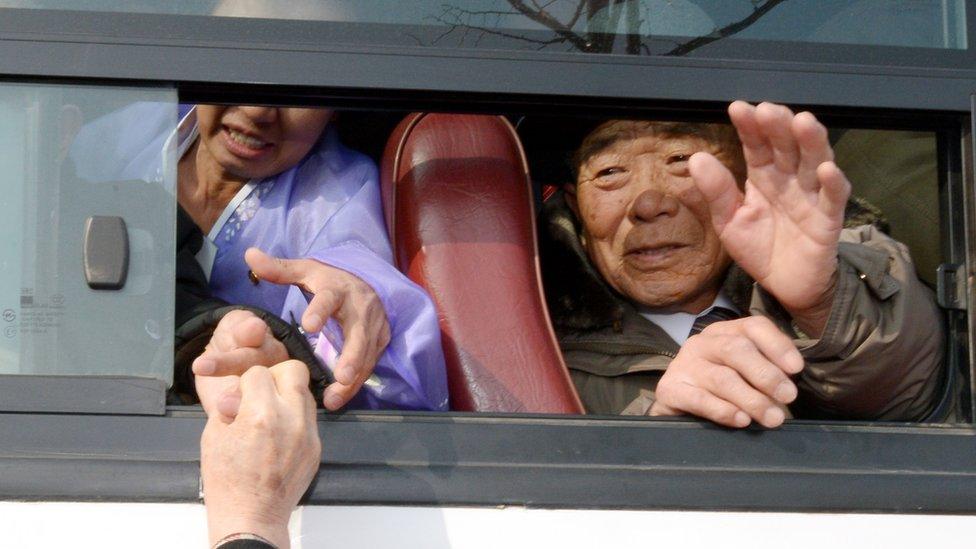
Millions of people were separated by the Korean War
Between 2000 and 2007, the two Koreas held reunions about twice a year.
But they only occurred twice from 2007-2013, as ties between Lee Myung-bak's conservative government in Seoul and the regime in Pyongyang soured.
As a result, the February 2014 reunion - the first in more than three years - generated considerable excitement.
But ties also became strained between the North and South.
As the Asian Games neared, North Korea threatened to pull out - before eventually sending a delegation of 273 athletes and officials.
It sent three of its most powerful military and political figures - Hwang Pyong-so, Choe Ryong-hae and Kim Yang-gon - but cancelled plans to send a cheerleading squad.
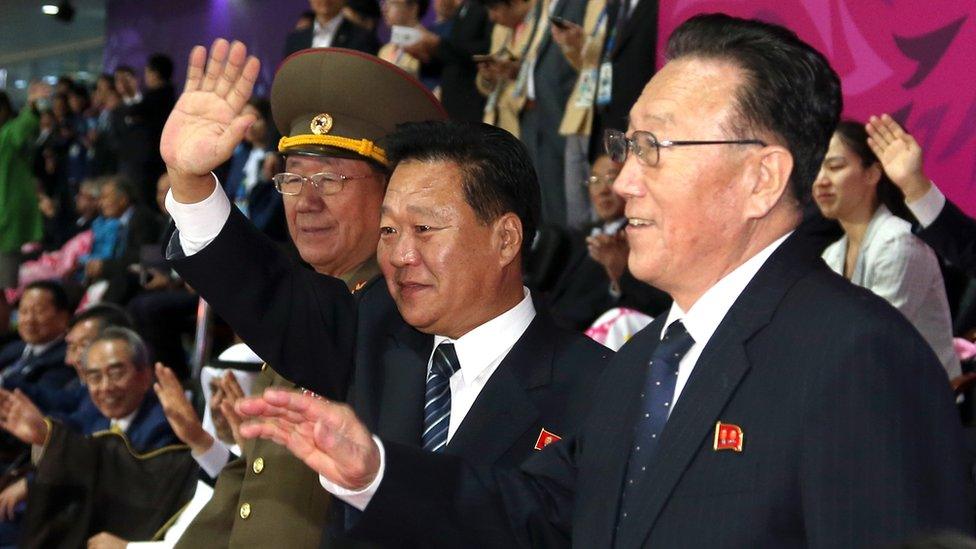
Hwang Pyong-so (L), Choe Ryong-hae (C) and Kim Yang-gon at the Asian Games in Incheon in 2014
Family reunion events have not taken place since 2015.

The Pyeongchang Winter Olympics
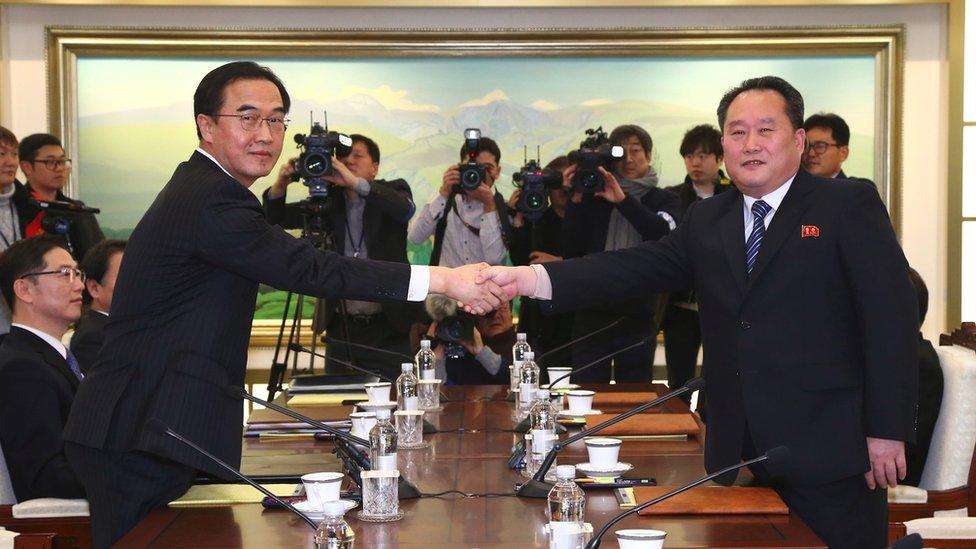
These are the first high-level Korea talks in two years
The 2018 Winter Olympics will come after a period of heightened Korea tensions.
In 2017, North Korea conducted its sixth nuclear test, and several missile tests. As a result, some South Koreans have prepared for the worst - buying "war survival bags" in anticipation of a possible nuclear attack.
But then came North Korean leader Kim Jong Un's "olive branch", when he announced in his New Year's speech that the North could send a delegation to the Pyeongchang Winter Olympics in February.
And both sides appear keen to talk.
Whereas previous high-level meetings have been difficult to set up and involved various power struggles - with disputes over the venue, dates and attendees - this time it took just one week for the two Koreas to agree on the specifics of the talks.
On 9 January, the talks began on a friendly note. President Moon Jae-in's liberal government in the South is hoping that the discussions could mark the beginning of something bigger, of something beyond just sport.
Reporting by Kim Hyung Eun of BBC Korean


- Published9 January 2018
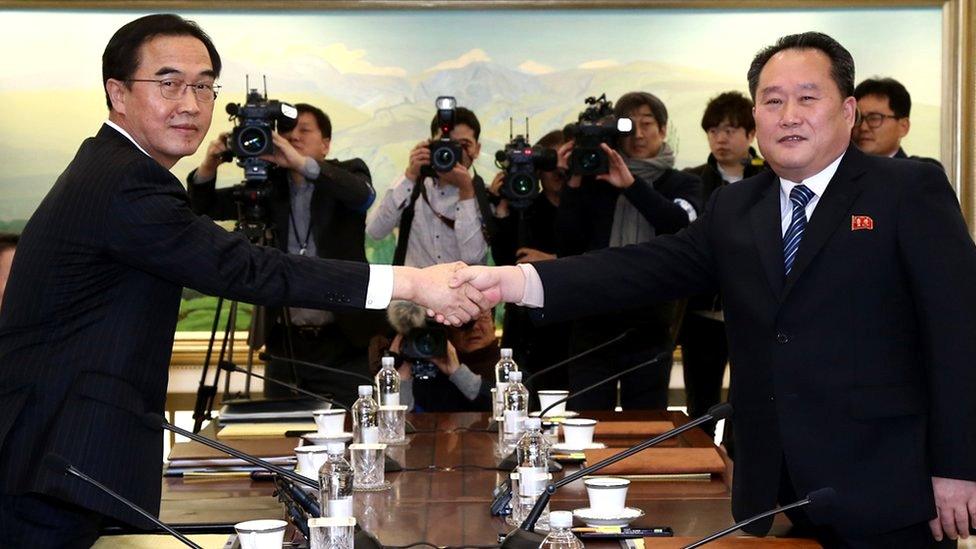
- Published8 January 2018
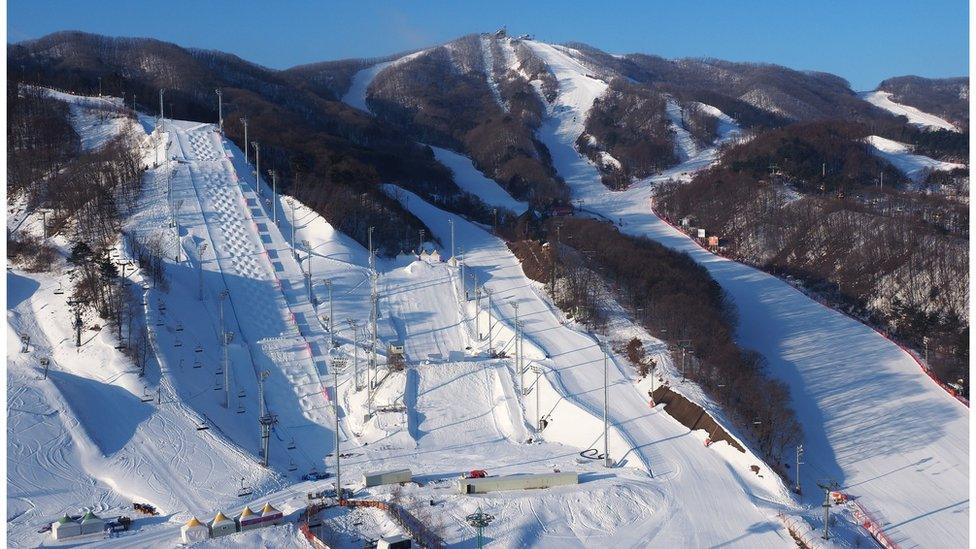
- Published3 January 2018
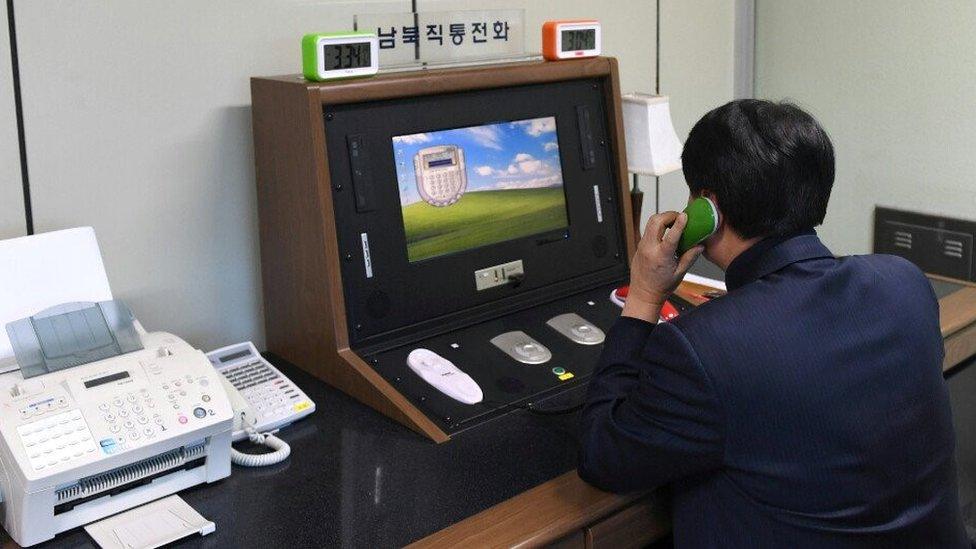
- Published3 January 2018
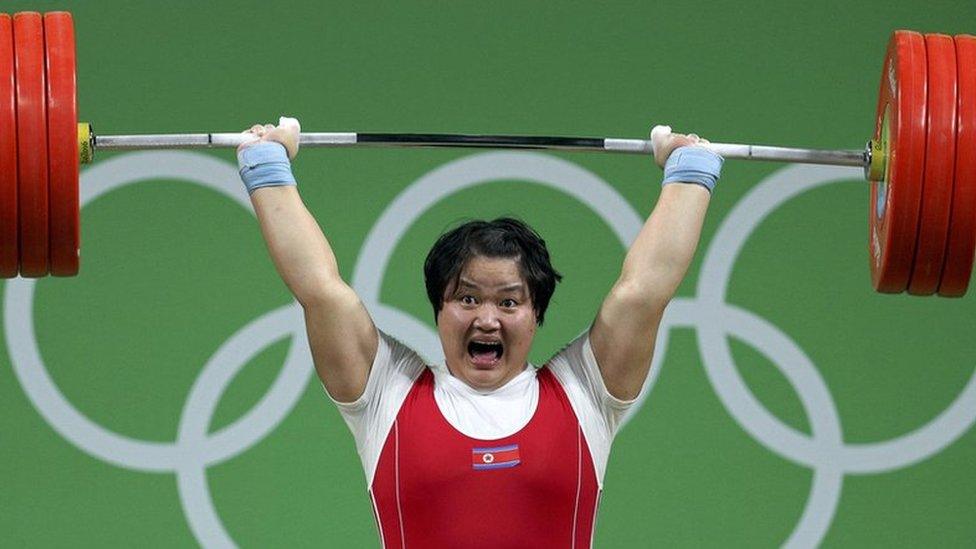
- Published21 April 2020
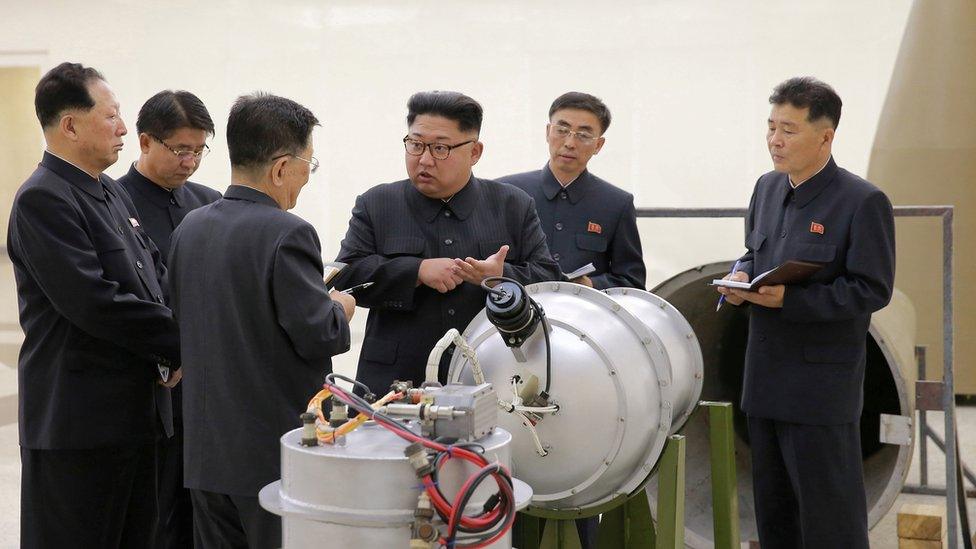
- Published5 January 2018
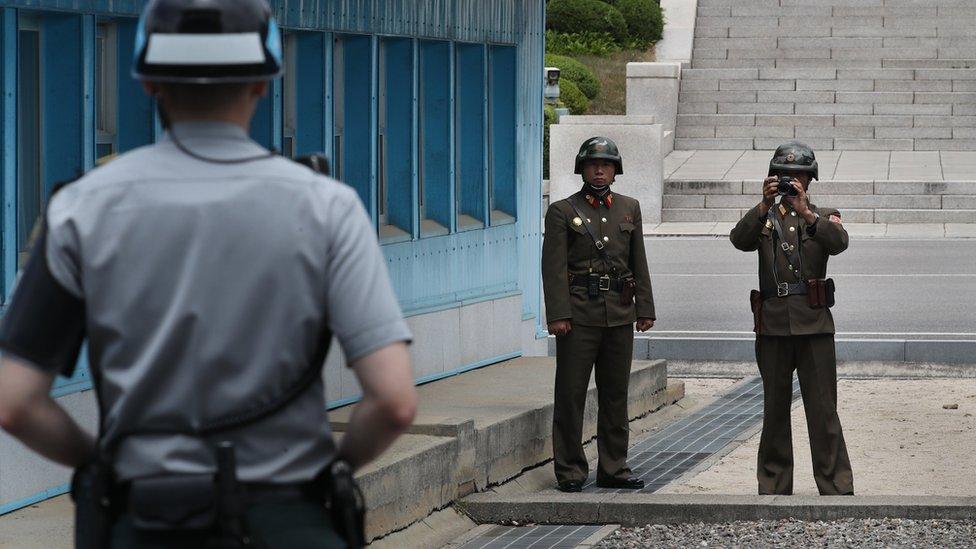
- Published5 January 2018
